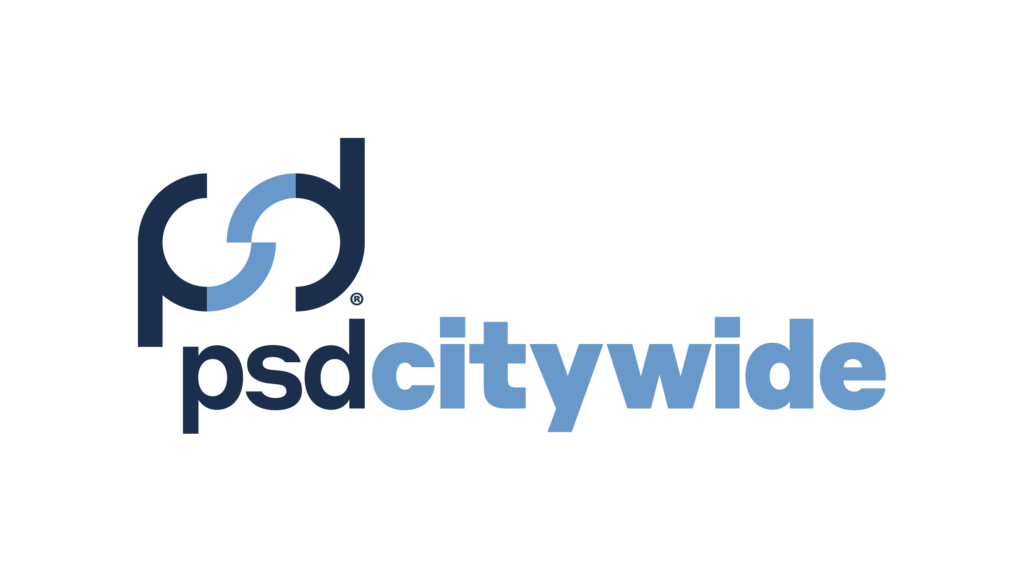During the first two parts of this series we examined the results of a global culture assessment on the impact COVID-19 has had on local government organizational culture, trends for civic recovery, and featured the resilience and effectiveness of compassionate civic leadership and the servant leadership model in managing complex crises and pivoting for the “great reset” or “new normal.”
Today we take a deeper dive into sustaining the positive shift in values and renewed civic spirit of solidarity, open collaboration, mutual care, and compassion in the face of public exhaustion and sometimes frustration with pandemic safety protocols and measures, loss or restriction of civic services and general uncertainty in the community that sometimes finds its expression as toxic attacks on elected officials and increasingly on municipal staff.
I. THE REALITY OF THE FRONT LINE
Two hundred days after the World Health Organization (WHO) declared COVID a global pandemic, the Canadian Urban Institute issued a report on the impacts of the crisis on Canada’s cities. Their survey found that 60 percent of Canadians agreed with the statement that their “local/municipal government was performing well to protect residents against health risks.” Cities such as Ottawa, Toronto and Yellowknife had approval ratings of 70 percent or higher. Not bad, all things considered.
However, the pandemic drags on and now we are well into the second wave with no clear end in sight. Public frustration and anger are mounting in concert with the negative effects of COVID on every aspect of people’s lives, from economic instability and financial loss to the growing mental health crisis, including rising suicide and opioid deaths.
While it is critical, as always, to strive for excellence and continuous improvement in governance, service delivery, democratic engagement and communications, during times of great uncertainty and loss, no matter how well a local government manages its resources and communications functions, community leaders will always be on the front lines of intense public emotion–whether it be gratitude, grief or anger.
In fact, this is true for every level of government. While British Columbia’s top medical officer Dr. Bonnie Henry received countless distinguished awards and accolades for her COVID-19 calm and kind leadership–from the CPRS President’s Award for Outstanding Public Relations and Communication Management to headlines like the one in the New York Times that celebrated her as “The Doctor Who Aced the Coronavirus Test”—she has been the repeated target of harassment, abuse and even death threats from members of the public.
At the local level, tragic stories of harassment of city staff are making headlines. In a heartbreaking and compelling November 2nd letter to the public that was covered by CBC News, City of Kimberley Chief Administrative Officer Scott Sommerville drew a line in the sand, after the city’s parks manager resigned following months of bullying by members of the public about recreational facilities that were ordered closed due to the COVID-19 pandemic.
In Sommerville’s open letter, he writes how this employee “kept the safety of city workers and the public at the front of mind, while considering ever-changing provincial public health orders and guidelines from governing sports bodies.” Sommerville further committed to “continue to work towards protecting our vulnerable residents” and states he “won’t tolerate bullying or harassment of my staff.” Mayor Don McCormick also emphasized the inappropriateness of the conduct and insisted that city staff should not have to bear the brunt of public criticism for executing orders from politicians.
Troubles with anger in the public square are not new. Over two thousand years ago, the great Roman statesman and philosopher Seneca said of anger that “no plague has cost the human race more dear: you will see poisonings, accusations and counter-accusations, sacking of cities, ruin of whole peoples…the foundations of the most celebrated cities hardly now to be discerned; they were ruined by anger.” Anger is, no doubt, an emotion that civic leaders must take seriously.
Our modern democracy evolved to empower citizens to give expression to their anger and frustration in ways that do not rely on threats and violence. These ways and the socio-political and economic infrastructure that supports healthy civic participation—such as a robust civic education system, equality of opportunity and a vibrant local press—in some cases were never fully developed and in others, have atrophied over time. Social media only made matters worse. Add a pandemic to the mix and citizen outbursts, slanderous attacks and threats of public officials and staff are on the rise everywhere.
What is to be done?
“… courageous civic leadership commits to ensuring the proper treatment of public servants as a daily practice and cultural norm of drawing a line in the sand when it comes to conduct that is respectful and appropriate in the public square and conduct that is clearly not.”
II. PROTECTING PUBLIC SERVANTS TODAY
There are clearly larger systemic issues that need to be addressed. However, the first order of business is protecting public servants from harm today. This requires courageous leadership with integrity and clear boundaries. It means setting clear expectations of acceptable conduct in the public square, quick action when harassment or abuse surfaces, no throwing colleagues and/or staff under the bus, calling out toxic behaviour in the public square and holding people accountable for their harmful actions – regardless of whether they come from friend or foe.
Too often, intimidation, bullying and harassment of public servants is downplayed or worse, seen as part and parcel of the job, or when it escalates to volatile and ghastly levels is treated as an internal, private, legal or even criminal matter handed over to the police for quiet “resolution.”
In contrast to this, courageous civic leadership commits to ensuring the proper treatment of public servants as a daily practice and cultural norm of drawing a line in the sand when it comes to conduct that is respectful and appropriate in the public square and conduct that is clearly not.
The City of Elliot Lake, Ontario took the pre-emptive step of drafting and adopting a Citizen Code of Conduct this September that goes beyond traditional and mandated workplace violence and harassment policies to address various situations where a member of the public has become either belligerent, threatening, or otherwise inappropriate causing a concern for the health and safety of staff and/or the general public and empowers the issuance of trespass orders in egregious cases.
Elliot Lake Chief Administrative Officer Daniel Gagnon explains the need for such a policy in the following way: “I’ve witnessed at various events people thinking they have the right to take [a decision or whatever’s going on that they don’t like] out on the staff that are working and I don’t think that’s okay. I think the community needs to know that we expect a decorum of behaviour.”
While the threshold of what is considered tolerable conduct in the public square is a bit higher for elected officials, there are clear lines that need to be drawn here as well. After years of escalating threatening public conduct towards elected officials, the Local Government Association in England has prepared a Councillors’ Guide to Handling Intimidation which provide practical steps that Councils can undertake to protect members.
The guide defines intimidation as “words and/or behaviour intended or likely to block or deter participation in public debate, which could lead to an individual wanting to withdraw from public life.” And this line in the sand points to the damage caused by toxicity in the public square to civic participation, freedom of speech and the viability of our democracy.
III. RESTORING CIVIL SOCIETY AND WELLBEING
A concurrent path towards systemically addressing toxicity in the public square and fostering a culture of civility, respect, mutual care and wellbeing includes efforts to enhance the skills of both citizens and civic leaders in civil discourse, critical thinking, social emotional regulation, secular ethics and the centrality and importance of human well-being and compassion in a healthy society.
Toxicity in the public square causes harm to individuals and organizations, results in a loss of diversity, lost productivity, costly lawsuits, and tears at the social fabric of communities. Ultimately, it undermines our democracy and the ability for governments to work collaboratively and effectively with the public to solve the many complex problems communities face. COVID has only exacerbated these challenges, threatening local economies, main streets, and downtowns as well as the further deepening of systemic urban inequalities and local government funding shortfalls.
In short, we need each other. A notable global effort to improve the quality of civic participation and social trust is called Citizen Discourse, which promotes the practice of healthy civil discourse skills. Individuals and organizations are encouraged to voluntarily sign a Compassion Contract – a type of social contract committing them to a set of shared values that inform a community’s norms for engagement. They are centred on a few principles—namely, be respectful; listen to understand; act with good intentions; support ideas with evidence and experience; disagree without being disagreeable; critique the idea, not the person; invite wonder.
Other communities are experimenting with public campaigns and pledges. For instance, the City of Durango, Colorado together with the business community and other community partners launched the Civility Pledge, committing participants to “model civil behaviour and tone, and to promote respect for diversity” and participate in shared learning and community building activities.
Simon Fraser University’s Morris J. Wosk Centre for Dialogue recently published the results of a two-year survey in which they found that 60 percent of Canadians want improved civic education and 44 percent would like more avenues for democratic participation. In 2019, the US Chamber of Commerce launched the Civics Forward series which examines the future of civic education, civic engagement, and civil discourse in the country. They have been holding conferences bringing leaders in business, education, and government together to discuss how to prepare the next generation for the awesome responsibilities borne by citizens in a healthy democracy. Local governments across North America have been finding unique ways to foster the civic values and skills needed for civic participation by establishing their own mini-civic academies and civic education initiatives.
Then there are the 450 cities that have adopted and signed the Charter for Compassion – a public commitment to foster safe, inclusive, and resilient communities for all that are rooted in ethical conduct and compassionate integrity.
One such Charter Compassionate City, the District of Sooke, British Columbia was already well-positioned to adapt to pandemic-exacerbated social and economic challenges. In 2019, Council adopted the Sooke Compassionate Action Plan that committed the District to partner with the community to address homelessness, the affordability crisis, social isolation, inadequate health services, and enhance public communication and collaboration. In July of this year, new homeless shelter space was quickly secured as multiple agencies rapidly banded together in the district to meet evolving community needs.
Sooke Mayor Maja Tait says part of embracing ‘the new normal’ during the pandemic is thinking outside the box, forging new relationships with community partners, and finding solutions that work for everyone. “I am grateful, but not surprised, that community partners came together under tight timelines, and found a better way to help our most vulnerable residents.”
During the summer pandemic months, the City of San Antonio, Texas established the San Antonio Compassion Institute and initiated Compassionate Integrity Training for civic and educational leaders from 85 percent of the city’s universities, colleges, and schools. San Antonio Mayor Ron Nirenberg describes his motivations in this way:
“Our lives have been disrupted [by COVID] at local and global levels. Inequities have surfaced into full view. While our situation could be frustrating, frightening and even depressing, signs of potential for positive change and community growth have also emerged. We are all being urged to display creativity, compassion in these trying times. To become anything of true worth requires commitment and learning. Where do we begin? I began with myself and my office. We were some of the first to take Compassionate Integrity Training. Even though compassion may sound like a soft skill set, it has very hard outcomes. Research shows that businesses that practice compassion increase their bottom line, that compassion decreases bullying in schools and increases the body’s immune system and other healing properties. We need compassion now more than ever.”
The City of San Antonio was the first community in the world to offer this type of city-wide civic education aimed at building systemic compassion into every action, decision or policy an institution enacts. Participants learn to cultivate the values and leadership skills required for personal, social and environmental well-being – referred to in city building circles as the elements of human flourishing. The Institute’s over 800 graduates are popularly referred to as “compassionistas” and compassion ambassadors.
City leaders in other Charter Compassionate Cities in the United States–such as Houston and Dallas Fort Worth, Texas, Atlanta, Georgia, and Tuscon, Arizona—have also taken Compassionate Integrity Training as they support and equip a generation of leaders committed to fostering compassionate community culture aimed at securing the wellbeing of all.
As this column goes to press, the first such training tailored uniquely for civic leaders, called Resilient Civic Leadership: Compassionate Integrity Training for Civic Leaders will be graduating its first cohort representing elected officials, Chief Administrative Officers, and other senior civic leaders from 16 different municipalities across Canada. Graduates receive a university certificate from the Centre for Compassion Integrity and Secular Ethics, Life University. Registration is already open for a new cohort of civic leaders starting online training in the new year.
COVID-19 has laid bare our interconnectedness as people, communities, and nations. As we work together to protect and heal ourselves physically from the ravages of COVID, we can also heal the fabric and soul of our communities, democracy, and planet. For better or for worse, we really are in this together.
DIANE KALEN-SUKRA, MA, CMC is an author, speaker, educator, coach and certified culture change consultant with the Barrett Values Centre. Diane’s firm Kalen Consulting inspires and equips leaders to build resilient communities through good governance, asset management, servant leadership, compassionate culture, and civic education.
Subsidiary Kalen Civic Academy hosts Resilient Civic Leadership: Compassionate Integrity Training for Civic Leaders, a university certificate program through the Centre for Compassion, Integrity & Secular Ethics at Life University. This 10-session program shares ancient wisdom for modern city builders, backed by cutting-edge developments in the fields of neuroscience, psychology, trauma-informed care, peace and conflict studies, and contemplative science.
For more, join Diane on social media: LinkedIn | Twitter | Facebook | Instagram | Blog



